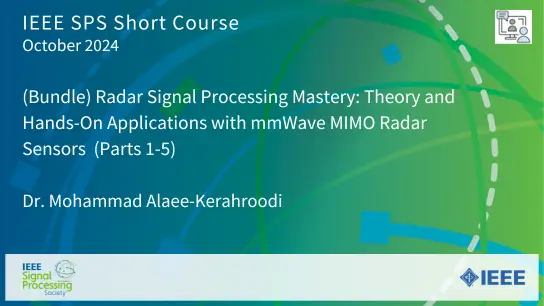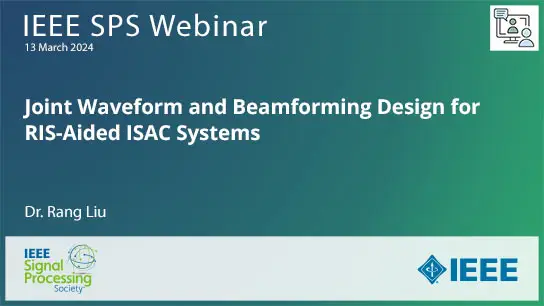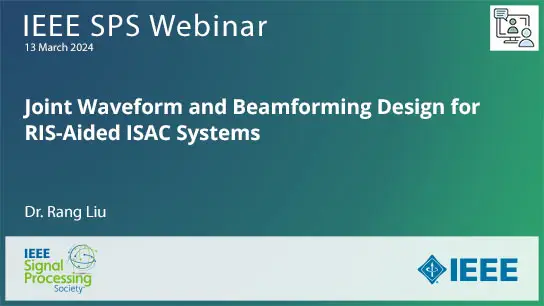Slides for: Cooperative Multi-Target Localization in Automotive Radar
Dr. Xudong Zhang, Dr. Fangzhou Wang, Dr. Hongbin Li
-
Members: FreeSPS
IEEE Members: $11.00
Non-members: $15.00Pages/Slides: 19
20 Sep 2023
We consider the problem of locating multiple targets using automotive radar by exploiting a pair of cooperative vehicles, which form a mono- and bi-static sensing system to provide spatial diversity for localization. In this webinar, we present an efficient two-step method that first determines initial target locations using delay and angle estimates from each individual system, and subsequently refines them via an association and fusion step. Specifically, we use a 2-dimensional (2-D) fast Fourier transform (FFT) based approach to obtain the initial target delay and angle estimates for each system, which are then sorted and paired via a minimum distance criterion. Finally, the initial location estimates are fused/weighted according to the target strength observed by each system. This cooperative approach yields improved performance over non-cooperative approaches using only the mono-static or bi-static sensing system. In addition to the two-step method, we will also discuss an alternative solution that exploits the fact that the received signals in both the mono- and bi-static systems are jointly sparse in the parameter (target location) space. This enables multitarget localization to be reformulated as a group sparse recovery problem.


